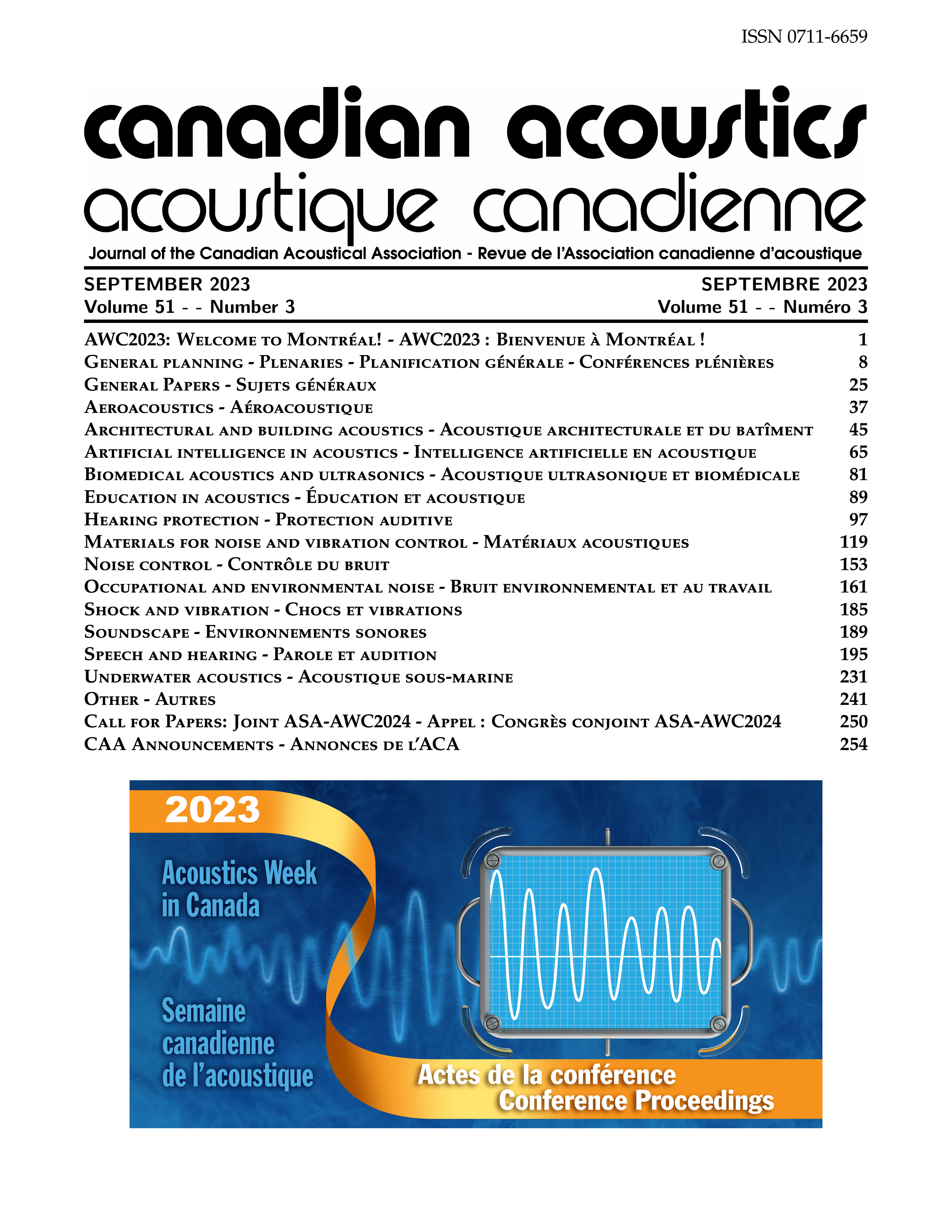Towards Adjustable Loudness Compensation in Hearing Protectors for Musicians
Abstract
Professional musicians are regularly exposed to excessive sound pressure levels, increasing the risk of noise-induced hearing loss. At present, several discomfort factors (physical comfort, acoustical comfort, etc.) limit the widespread use of hearing protection (HPD) for musicians. For acoustic comfort, two major effects are known to be the most detrimental: the isolation effect, which affects how external sounds are perceived (usually with unbalanced frequency content), and the occlusion effect, which amplifies all internal sounds (such as voice or instrument sound but also swallowing, breathing. etc.) to an uncomfortable level. Two studies on the isolation effect in HPDs are presented. The first study evaluates the improvement of classic electronic loudness compensators to the acoustic comfort of hearing protectors. From the questionnaire filled out by the participants, all from music-related fields, musicians unanimously expressed the desire to adjust their protectors. However, the results of subjective acoustic assessments showed a preference for uncompensated sound. Such preference, which is in disagreement with previous studies on loudness compensators, could be explained by the maximum level of the output that was an A-weighted overall level.The second study investigates the relevance of compensators in a context where an overall level constraint is required. In this experiment, participants adjust the parameters of various electronic loudness compensation filters to match the timbre to the original, non-attenuated, sound extract.Through those two studies, we wish to improve our understanding of musicians' HPD adjustment needs. In the first study, we evaluated the performance of existing loudness compensators in the context of HPDs. In the second, we evaluate different adjustment control schemes and filters to find the balance between adjustment simplicity and compensation effectiveness.Additional Files
Published
How to Cite
Issue
Section
License
Author Licensing Addendum
This Licensing Addendum ("Addendum") is entered into between the undersigned Author(s) and Canadian Acoustics journal published by the Canadian Acoustical Association (hereinafter referred to as the "Publisher"). The Author(s) and the Publisher agree as follows:
-
Retained Rights: The Author(s) retain(s) the following rights:
- The right to reproduce, distribute, and publicly display the Work on the Author's personal website or the website of the Author's institution.
- The right to use the Work in the Author's teaching activities and presentations.
- The right to include the Work in a compilation for the Author's personal use, not for sale.
-
Grant of License: The Author(s) grant(s) to the Publisher a worldwide exclusive license to publish, reproduce, distribute, and display the Work in Canadian Acoustics and any other formats and media deemed appropriate by the Publisher.
-
Attribution: The Publisher agrees to include proper attribution to the Author(s) in all publications and reproductions of the Work.
-
No Conflict: This Addendum is intended to be in harmony with, and not in conflict with, the terms and conditions of the original agreement entered into between the Author(s) and the Publisher.
-
Copyright Clause: Copyright on articles is held by the Author(s). The corresponding Author has the right to grant on behalf of all Authors and does grant on behalf of all Authors, a worldwide exclusive license to the Publisher and its licensees in perpetuity, in all forms, formats, and media (whether known now or created in the future), including but not limited to the rights to publish, reproduce, distribute, display, store, translate, create adaptations, reprints, include within collections, and create summaries, extracts, and/or abstracts of the Contribution.


